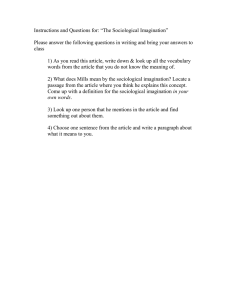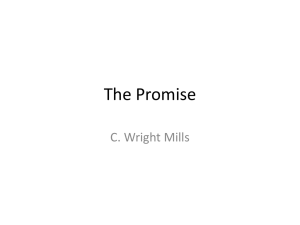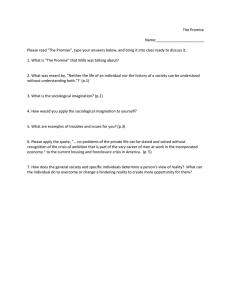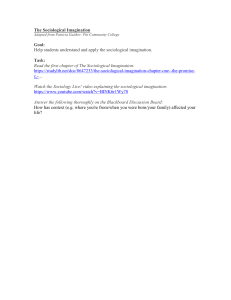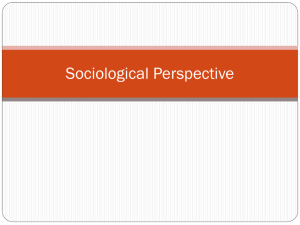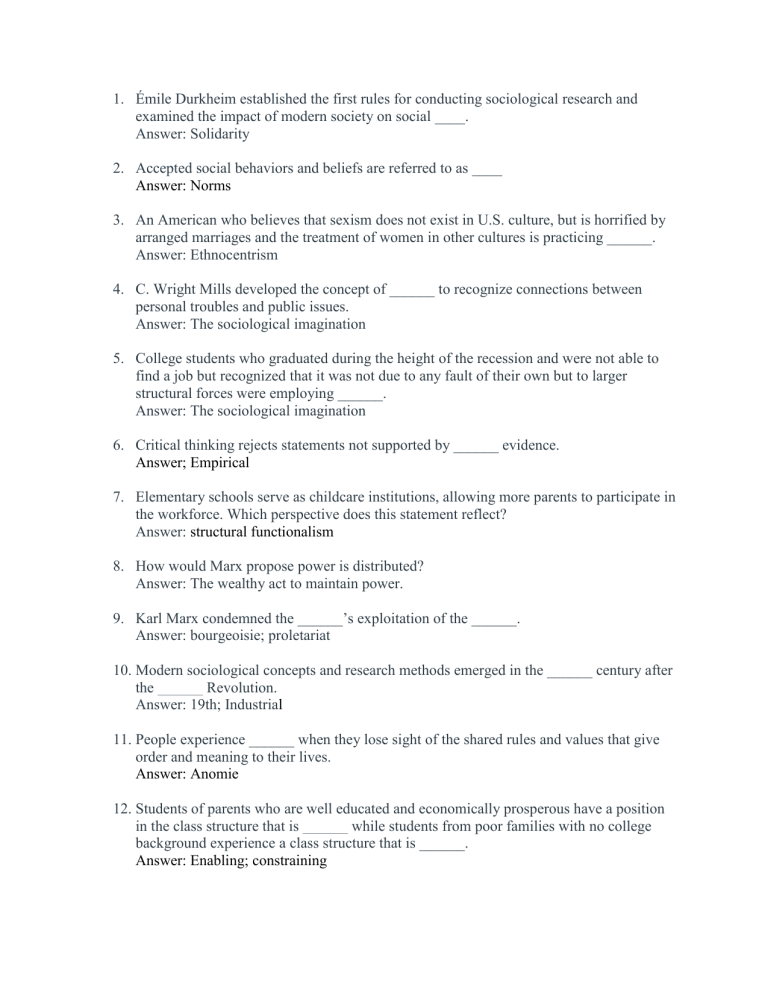
1. Émile Durkheim established the first rules for conducting sociological research and examined the impact of modern society on social ____. Answer: Solidarity 2. Accepted social behaviors and beliefs are referred to as ____ Answer: Norms 3. An American who believes that sexism does not exist in U.S. culture, but is horrified by arranged marriages and the treatment of women in other cultures is practicing ______. Answer: Ethnocentrism 4. C. Wright Mills developed the concept of ______ to recognize connections between personal troubles and public issues. Answer: The sociological imagination 5. College students who graduated during the height of the recession and were not able to find a job but recognized that it was not due to any fault of their own but to larger structural forces were employing ______. Answer: The sociological imagination 6. Critical thinking rejects statements not supported by ______ evidence. Answer; Empirical 7. Elementary schools serve as childcare institutions, allowing more parents to participate in the workforce. Which perspective does this statement reflect? Answer: structural functionalism 8. How would Marx propose power is distributed? Answer: The wealthy act to maintain power. 9. Karl Marx condemned the ______’s exploitation of the ______. Answer: bourgeoisie; proletariat 10. Modern sociological concepts and research methods emerged in the ______ century after the ______ Revolution. Answer: 19th; Industrial 11. People experience ______ when they lose sight of the shared rules and values that give order and meaning to their lives. Answer: Anomie 12. Students of parents who are well educated and economically prosperous have a position in the class structure that is ______ while students from poor families with no college background experience a class structure that is ______. Answer: Enabling; constraining 13. What effect did industrialization have on cities? Answer: It fostered the growth of cities. 14. What is the key question posed by the functionalist perspective? Answer: What function does a particular institution, phenomenon, or social group serve for the maintenance of society? 15. Which 19th-century sociologist is credited with founding sociology? Answer: Auguste Comte 16. Which is a characteristic of class conflict? Answer: Capitalists keeping wealth from workers 17. Which of the following is a characteristic of critical thinking? Answer: Recognizing weak arguments 18. Which of the following is a characteristic of symbolic interactionism? Answer: People understand themselves through their interaction with others. 19. Which of the following is the best example of agency? Answer: A student’s ability to advocate for himself 20. Which sociological concept uncovers the relationship between personal troubles and public issues? Answer: Sociological imagination

